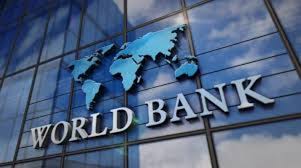The World Bank has recognized the pressing need for a ‘reset’ agenda at this opportune time in Ghana’s economic history and urges the government to break from past traits.
The World Bank, in its latest report titled “2025 Policy Note: Transforming Ghana in a Generation,” noted that the new government, barely a year old, should focus on providing new governance and institutional reforms, and promoting macroeconomic, structural, and social policies.
The government, according to the World Bank, can achieve its goal of a reset if the new reforms are successfully implemented, ensuring inclusive growth that positively impacts the lives of the populace.
“[World Bank] recognized the urgent need to ‘reset’ the economy, through new governance and institutional reforms, alongside comprehensive macroeconomic, structural, and social policies. If successfully implemented, the government’s vision can achieve the goal of a broad-based growth and poverty reduction.”
Ghana has, between 2000 and 2010, achieved significant economic growth with reduced poverty and a promising future, according to the report. The years that followed reversed the economic fortunes of the country as growth declined and programs to reduce poverty stalled, leading up to the 2022 macroeconomic crisis.
As part of its history, Ghana has fully depended on raw natural resources with little or no effort in structural transformation.
This has reduced the potential growth of the economy and characterized average productivity expansions. The productive sector of the economy, which should lead in creating employment opportunities, gave way to jobs in the low-productivity sectors.
Online movie streaming services
According to the World Bank report, the Ghanaian economy has been built on the informal sector, ‘crude’ mining, and agriculture.
Consequently, income per capita has stagnated at around US$2,200 over the past 10 years, and the progress in human development has been reversed, with poverty now afflicting more than one-quarter of the population,” the report added.
The report declared that poor governance has been the main reason for the economic struggle the country has faced, leading the 17 different programs with the IMF for relief.
“Ghana’s history is marked by persistent governance issues that have obstructed policy reforms and prevented structural transformation and hindered economic diversification, thereby perpetuating a ‘boom and bust’ cycle.
“Sudden macroeconomic stops and crises have led the country to request a record 17 programs with the International Monetary Fund (IMF), remaining under active IMF programs for 40 out of its 68 years of history.”
With the increasing ease of accessing the capital market, governments have been shortsighted while promoting fiscal indiscipline, inefficiency, mismanagement, and delayed crucial reforms. This, according to the report, weakened the social contract.
The report stated emphatically that “deterioration of global conditions due to the COVID-19 pandemic and the Russian Federation’s invasion of Ukraine was not the cause of the 2022 macroeconomic crisis; rather, it merely exposed an economy already beset with deep structural vulnerabilities and precarious macroeconomic conditions.”
The condition, mode, timing, and situation of the current government have birthed the best opportunity to truly reset the country and forge a new path to prosperity.
“Seizing this opportunity with an urgent reset. With a strong popular mandate and a significant parliamentary majority, the new government is uniquely positioned to lay the foundations to foster broader-based economic growth and structural transformation.”
Charting a new course for Ghana will require an efficacious and “delicate balance between short-term macroeconomic stabilization, medium-term economic recovery and job creation, and long-term structural transformation in a sustainable manner.”
In the short term, the current achievements of the government must be sustained and consolidated with a credible posture and policy. The report alluded to the fact that the Ghanaian economy is still fragile in the current economic situation.
The World Bank urged the government to restore macro-financial stability to reduce debt and borrowing while ensuring the State-Owned Enterprises (SOEs) live within their means.
The short-term period should be used to implement the hard reforms to address the underlying causes, the report projects. Reforms in key sectors like energy, gold, and cocoa will define the next stage.
The medium-term plans, as designed by the Report, should focus on job creation by building reform momentum and consolidating consensus to promote social cohesion. With a youthful population, the government’s focus should be on quality job creation and promoting private sector investment.
The Long-term plan, according to the World Bank, requires moving quickly to “create a platform for higher and more broad-based growth,” adding that, “given that realizing the benefits of necessary structural reforms will take time, the new government should immediately frontload the long-awaited structural reforms without further delays.”
The government must address the infrastructure deficit and financial challenges while building human capital and attracting Foreign Direct Investment (FDI) in productive sectors.
According to the World Bank report, “a dynamic, broad-based, and growing economy provides the necessary foundation to maintain fiscal surpluses, reducing the vulnerability to economic shocks and ensuring the sustainability of public debt.”
The report concluded that the new government must be founded on good governance and swift institutional reforms.


Comments are closed.